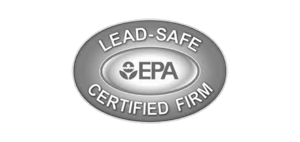Why does your garage floor always seem damp, no matter the season? Fixing a damp garage floor starts with finding out why it’s wet. Often, the problem is old construction methods, like bad moisture barriers or wrong concrete slabs.
Old or wrong construction can make your garage floor weak against moisture. This moisture harms the floor and speeds up damage to stored items. It can also cause mold, which is bad for your health.
To fix the moisture problem, you need to think about more than just using dehumidifiers or better air flow. You might need to seal the concrete or install special moisture control systems. By doing this, you can turn a damp garage into a dry, useful space.
Causes of a Damp Garage Floor
A damp garage floor can come from several sources. Condensation, or “sweating,” is the most common. This happens when warm, moist air meets cooler concrete, especially in warmer months. It’s known as Sweating Slab Syndrome and affects the concrete industry a lot.
Moisture from the ground below is another big cause. This happens when concrete is porous and doesn’t have a moisture barrier. Testing with plastic can show if it’s sweating or groundwater.
Changes in the environment, like new plants or groundwater shifts, can make floors damper. Not having damp-proofing, like membranes and dehumidifiers, also plays a part. Using dehumidifiers and fans can help lower humidity and stop condensation.
Bad construction, like wrong concrete or damp-proof courses, can also cause dampness. Putting in a damp-proof membrane early on helps a lot. Liquid membranes and epoxy floor coatings add extra protection.
Installing a French drain can help a lot by moving excess water away. Soils engineers suggest certain adjustments to make the system last longer.
Using different flooring, like interlocking tiles or vinyl, can also help. These materials don’t absorb moisture as much and last a long time.
Finding out why the floor is damp is key. It could be condensation or groundwater. Knowing the cause helps find the best way to fix the problem.
How to Fix Damp Garage Floor?
Fixing a damp garage floor needs a few steps, based on the cause and environment. Common causes include condensation and bad concrete installation. To tackle these, several damp garage floor solutions are available.
Changing your surroundings, like removing big plants or trees, can increase ground moisture. A simple test with a plastic square on the floor can show if it’s condensation or moisture below the slab.
Lowering humidity is key in preventing dampness in garage floor. Using a dehumidifier can greatly reduce moisture. Also, raising the air temperature and improving ventilation through windows and fans helps fight dampness.
For lasting garage floor waterproofing methods, consider a damp proof membrane. These can be put between the hard core and concrete floor. Liquid membranes and epoxy floor coatings, needing two coats, also protect well against moisture.
Another good long-term fix is GFTC interlocking PVC floor tiles. They are tough and keep dust and dampness out. Also, make sure garage doors have proper weatherstripping and wooden doors have well-maintained bottom trim to block water.
Proper vacuum or air-sealing of garage windows is crucial to stop moisture entry. Getting professional window seals installed is wise to avoid future moisture problems. For severe cases, detached garages offer strong protection against weather.
By using these moisture-proofing garage floors methods, homeowners can make their garage dry, useful, and lasting. It will resist dampness and improve its use.
Conclusion
To fix a damp garage floor, you need to start by figuring out why it’s wet. Knowing how to manage moisture is key. This helps avoid problems like cracks, mold, and white salt deposits.
There are many ways to fix a damp garage floor. Simple steps include using dehumidifiers and making sure water drains away. For tougher issues, you might need to use special sealants or barriers.
Concrete floors are common but can still get damp. Keeping them in good shape is important. Regular care helps prevent damage from oils and chemicals.
Adding features like awnings and better drainage can also help. These steps keep your garage floor dry and in good condition for a long time.
Knowing when to call a pro is also important. For big problems like cracks or foundation issues, you’ll need expert help. With the right care and fixes, your garage can be a safe and useful space.



















